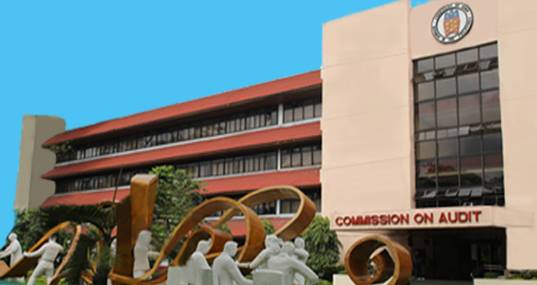Manila’s 2014 deal with dialysis center ‘disadvantageous’ for city – COA
MANILA, Philippines — The joint venture agreement entered by the local government of Manila in 2014 with B. Braun Avitum Philippines, Inc. (BBAPI), a dialysis firm, was disadvantageous for the city, the Commission on Audit (COA) said.
According to COA’s audit report of the city for 2020, they reviewed the joint venture agreement (JVA) to determine whether the 15-year contract Manila’s past administration signed with BBAPI was legally binding.
BBAPI was tapped to build, manage, and operate a new dialysis center at the Gat Andres Bonifacio Memorial Medical Center (GABMMC). However, the COA said that some provisions of the bill are unclear and may be disadvantageous for the city.
In one case, the COA said that the agreement that GABMMC would offer a 20 percent discount to BBAPI patients is problematic since the district hospital is a service-oriented institution, not one that seeks profits.
COA discovered that BBAPI lacks a mechanism to pass on the discount to its patients, which means that only BBAPI ends up benefiting from the discounts while the city pays 100 percent of the charges.
Article continues after this advertisement“It must be emphasized that the operation of the City hospital, GABMMC, is service rather than profit-oriented such that costing its services should be for cost recovery and not factor in profit. The mandatory granting of this 20-percent discount is a cost burden to GABMMC and, in effect, could be considered as [an] additional investment by the CGM in the joint venture (JV),” COA said in the report.
Article continues after this advertisement“The JVA does not have a provision passing this discount to the patients, thus, only BBAPI is directly benefiting from this privilege (lesser cost for the BBAPI), while the City is left with the burden of shouldering 100 percent of this discount. This effectively reduces the percent-share of the City in the revenue of the JV,” it added.
COA noted that the 20 percent discounts only apply to laboratory requirements referred to GABMMC, and are not extended to the City’s Orange Card Program, which subsidizes the cost of pharmaceuticals, supplies, and consumables for indigent patients.
BBAPI was also not subject to penalties in the JVA if certain agreements were not adhered to, such as late remittance. The fate of the assets contributed by the city government is also unclear once the joint venture ends.
“There is no provision on the imposition of penalty in case of [the] late remittance of City share in the JVA. The absence of such provision would provide BBAPI the luxury of time in the performance of its obligations without being sanctioned for its inability to timely remit the city share, to the detriment of the CGM,” COA said.
COA said the JVA clearly describes the applicable treatment rates, but there is no standard cost for the pharmaceutical products, supplies, and consumables (per dialysis session) that patients must pay.
It added that the JVA also doesn’t include a provision governing how these costs will be regulated by the City. In turn, this poses the risk of exorbitant pricing, which would harm dialysis patients as well as CGMs.
The BBAPI company was involved in a number of issues in 2020 after Senate Minority Leader Panfilo Lacson revealed that the ghost machines scam — which appeared to procure machines but did not exist — was replicated by BBAPI.
It was also dragged into the interim reimbursement mechanism controversy, as funds that should have been allocated to the COVID-19 response found their way to BBAPI.
READ: ‘Ghost dialysis machines?’ Lacson raises possibility of another ‘WellMed case’ in PhilHealth
READ: Lacson scores PhilHealth for releasing P45M to unregistered dialysis center
City officials have been encouraged to amend the Joint Venture Agreement so that the deal meets the needs of the city and its constituents. In addition, the COA stated that if BBAPI failed to adhere to the corrections, the city should terminate the agreement.
The Manila government responded by saying that BBAPI had already agreed to remove the discounts.
“It disagreed, however, to our audit recommendation on increasing CGM’s share in the revenue sharing commensurate to its investment. It also disagreed that the CGM take over the procurement pharmaceuticals and other consumable items utilized in the dialysis of patients,” COA said.
“It is amenable to the recommendation that the CGM procure the items that are not directly used for the dialysis treatment itself, but may nevertheless be required for the patients as prescribed by the doctors,” it added.
